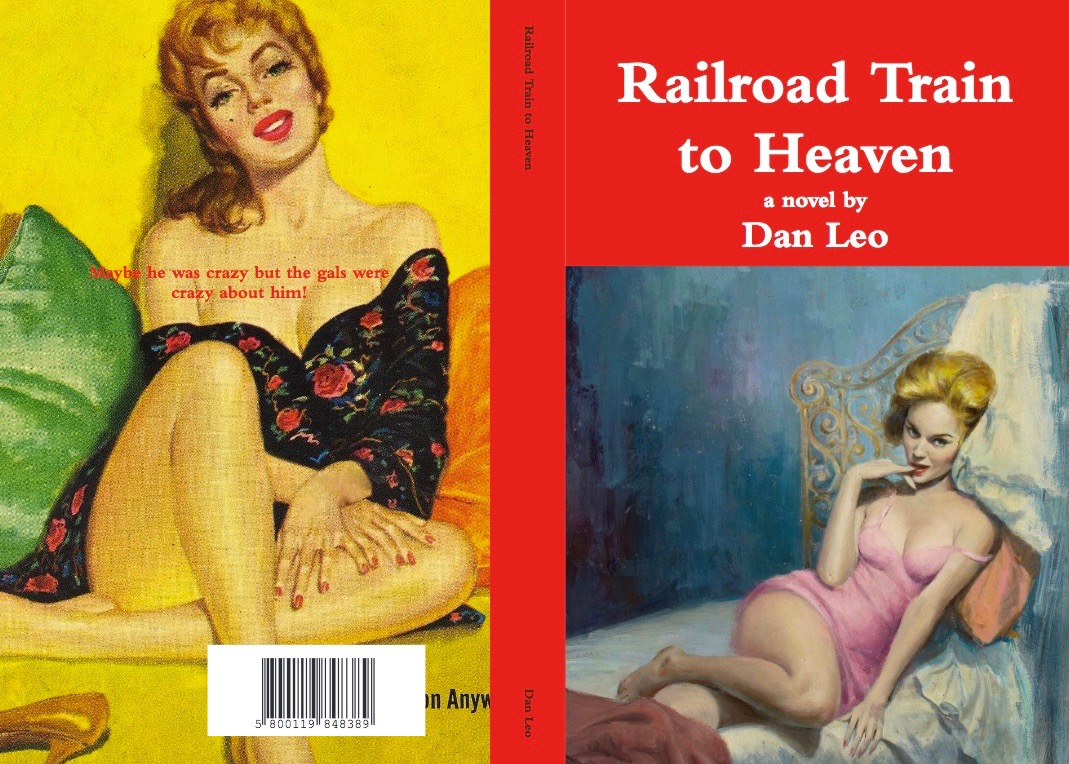“What’s the crowd like out there, Tony?”
“Good, Waldo, real good. I ain’t seen a crowd like this on a Tuesday since the World Series when we set up the extra TV sets at the bar.”
“Damn. Where’d all these people come from?”
“Beats me, but I’m glad they’re out there. Nothin’ I hate more than playing to a half-full room.”
“Jeeze.”
“Hey, don’t worry about it, Waldo. You’re gonna knock ‘em dead, Just give ‘em your twenty minutes, warm ‘em up good, then me and Shirley and the boys will do the heavy lifting till your next set.”
“I just wasn’t expecting a full house my first night,” said Waldo.
“You want a shot?”
“No, no shot, thanks though, Tony.”
“Awright, I’m gonna go out and play a few more solo numbers to lull them into submission, and then I’ll introduce you in about fifteen, so stick by the door.”
“Got it. Thanks, Tony.”
The canary Shirley De La Salle was putting on her make-up, and the bass player and the drummer and the guitar man were playing poker on a couple of beer crates set one on top of the other for a card table.
Waldo got up and cracked the door. The bar and almost all of the tables were full, and right there down front was a whole mob from Bob’s Bowery Bar. What the hell were they doing here? It was that young dame Araminta. Like a fool he had told her about his new gig, and she must have told the rest of the crowd. Didn’t they have nothing better to do on a Tuesday night? All her fellow poets were there: Hector Phillips Stone, the doomed romantic poet; Seamas McSeamas, the Irish poet; Howard Paul Studebaker, the western poet; Frank X Fagen the nature poet; Scaramanga, the leftist poet; Lucius Pierrepont St. Clair III, the Negro poet. That philosophical guy, the one everybody called the Brain, he was there, sitting right next to Araminta. That witty guy who wasn’t witty, the one they called Addison the Wit, even he’d shown up. Even the retired whore, Fat Angie, she was there, sitting next to Mushmouth Joe and that old guy they just called Wine on account of all he drank was Tokay wine. There was Philip the uptown swell, looking not too drunk for once, standing over by the service bar, saying something in the ear of the maître d’. Christ, Bob’s Bowery Bar must be like a ghost town tonight, and then, to Waldo’s horror, he saw that over at the bar even big Bob himself was here, next to Janet the waitress. And all of them were smiling, laughing, drinking and smoking, nodding their heads to Tony’s piano playing.
Waldo broke out in that all-too-familiar cold sweat under his brand-new second-hand suit. He closed the door and looked at Tony’s bottle of Cream of Kentucky over there on the shelf. Tony had said take a shot, hadn’t he?
He hesitated, then he went and grabbed Mickey Pumpernickel, went over to the john door, opened it, went in, closed it, went right over to the toilet, and threw up.
“You finished now?” said Mickey, a couple of minutes later.
“Yeah, I think I’m finished.”
“Then flush the toilet and throw some cold water on your face.”
Waldo flushed the toilet, sat Mickey on the seat, turned on the cold tap and splashed water on his face.
“Now rinse your mouth out, good.”
Waldo did what the dummy told him.
“There’s Listerine there, gargle good.”
Waldo gargled the Listerine, spat it out.
“Now one more rinse with the cold water.”
Again Waldo obeyed his dummy. The dummy knew best.
“Take out your Juicy Fruit.”
Waldo unwrapped a stick of gum, popped it into his mouth.
“You can’t give a good show if your mouth tastes like a garbage can.”
Waldo stood there, chewing, looking at his face in the mirror.
“Take out your comb, wet it, run it through your hair, just so’s you don’t look like you been sleeping in an alleyway.”
Waldo wet his comb, combed his hair.
“You want a cigarette? You got time for a cigarette.”
“No,” said Waldo. “I don’t want my throat to get dry.”
“Straighten your tie.”
Again Waldo did as he was told.
“You ready now?”
“Yeah, I’m ready.”
“You feel good?”
“Good as I’m gonna feel.”
“Good, now take a deep breath, go out there and wait outside the green room door and wait for Tony’s intro.”
“Right.”
“It’s a good crowd out there. Feed off the energy of the crowd.”
“Right.”
“Now go.”
Waldo picked up Mickey and went out of the bathroom. Shirley and the bass man, the drummer and the guitarist all turned away and acted as if they hadn’t been listening.
He went to the door that looked out on the Prince Hal Room and cracked it open. He felt good.
“Hey, Waldo.”
It was the canary, Shirley De LaSalle.
“Warm ‘em up good for us, man. You and Mickey both.”
“Yeah, sure, Shirley, we’ll do that.”
And, with Mickey Pumpernickel under his arm, Waldo went out, closing the door behind him.
{Please go here to read the “adult comix” version in A Flophouse Is Not a Home, illustrated by the one-and-only Rhoda Penmarq…}





